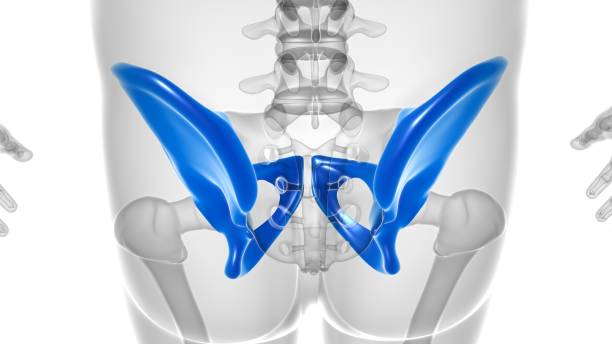The anterior retroperitoneal approach is gaining recognition as an effective option for addressing cases of failed microdiscectomy and failed Transforaminal Lumbar Interbody Fusion (TLIF). By allowing surgeons to access the spine through the front (anterior) of the body, this approach minimizes disruption to muscles and structures in the back, reducing complications and improving the success of revision surgeries.
Why the Anterior Retroperitoneal Approach is Effective for Failed Surgeries
Direct Access to the Disc and Vertebrae
This approach provides a clear path to the intervertebral disc and vertebrae without disrupting posterior muscles or scar tissue from prior surgeries. It allows for a more thorough removal of disc material, improved visibility of the disc space, and more precise placement of fusion devices.
Avoids Scar Tissue from Previous Surgeries
One of the main challenges in revision surgeries is dealing with scar tissue (epidural fibrosis) from previous procedures. The anterior approach bypasses these areas, lowering the risk of nerve damage and increasing surgical accuracy.
Higher Fusion Success Rates
For patients with failed fusions, the anterior approach allows for the placement of larger interbody cages and better access to the vertebral endplates, improving the chances of achieving a solid fusion—especially when a posterior fusion (TLIF) has failed.
Less Muscle Trauma
Since this approach does not involve cutting through the muscles in the back, patients experience less postoperative pain and recover more quickly.
Reduced Risk of Nerve Injury
In revision surgeries, where scar tissue can entrap nerve roots and dura from prior procedures, the anterior approach avoids these areas, reducing the chance of further nerve injury—a common issue in failed posterior surgeries.
Benefits for Failed Microdiscectomy
For patients with failed microdiscectomy, issues like recurrent disc herniation or incomplete decompression are often the culprits. The anterior approach offers better access to the disc space, enabling the surgeon to more effectively address any missed or recurrent disc issues.
Benefits for Failed TLIF
- In cases where a TLIF has failed, problems such as poor fusion or improper implant placement can be corrected. The anterior lumbar interbody fusion (ALIF) procedure, which is part of the retroperitoneal approach, allows for the insertion of larger fusion cages and better implant positioning, leading to higher fusion rates compared to posterior-only approaches.
Considerations and Risks
- Surgical Expertise: The anterior retroperitoneal approach requires specialized knowledge of retroperitoneal anatomy due to the proximity of vital structures like the abdominal organs and large blood vessels.
- Vascular Risks: There is a slight risk of vascular complications due to the close proximity of the aorta and vena cava.
- Patient Suitability: This approach may not be appropriate for all patients, especially those with certain abdominal conditions or those who have had extensive abdominal surgeries.
Conclusion: Expert Spine Care with Dr. V. Anand Naik
The anterior retroperitoneal approach is a valuable option for patients dealing with failed microdiscectomy or failed TLIF, providing a minimally invasive pathway to the spine that minimizes complications and improves fusion rates. This technique is particularly helpful in addressing issues related to scar tissue, poor fusion, or incomplete decompression.
For individuals seeking effective treatment for their spinal conditions, consulting a skilled spine surgeon is essential. Dr. V. Anand Naik, one of the Best Spine Surgeons in Delhi, specializes in advanced spine care techniques, including the anterior retroperitoneal approach. Don’t let previous surgeries dictate your quality of life—schedule a consultation with Dr. V. Anand Naik today and take the first step toward regaining your health and mobility.

